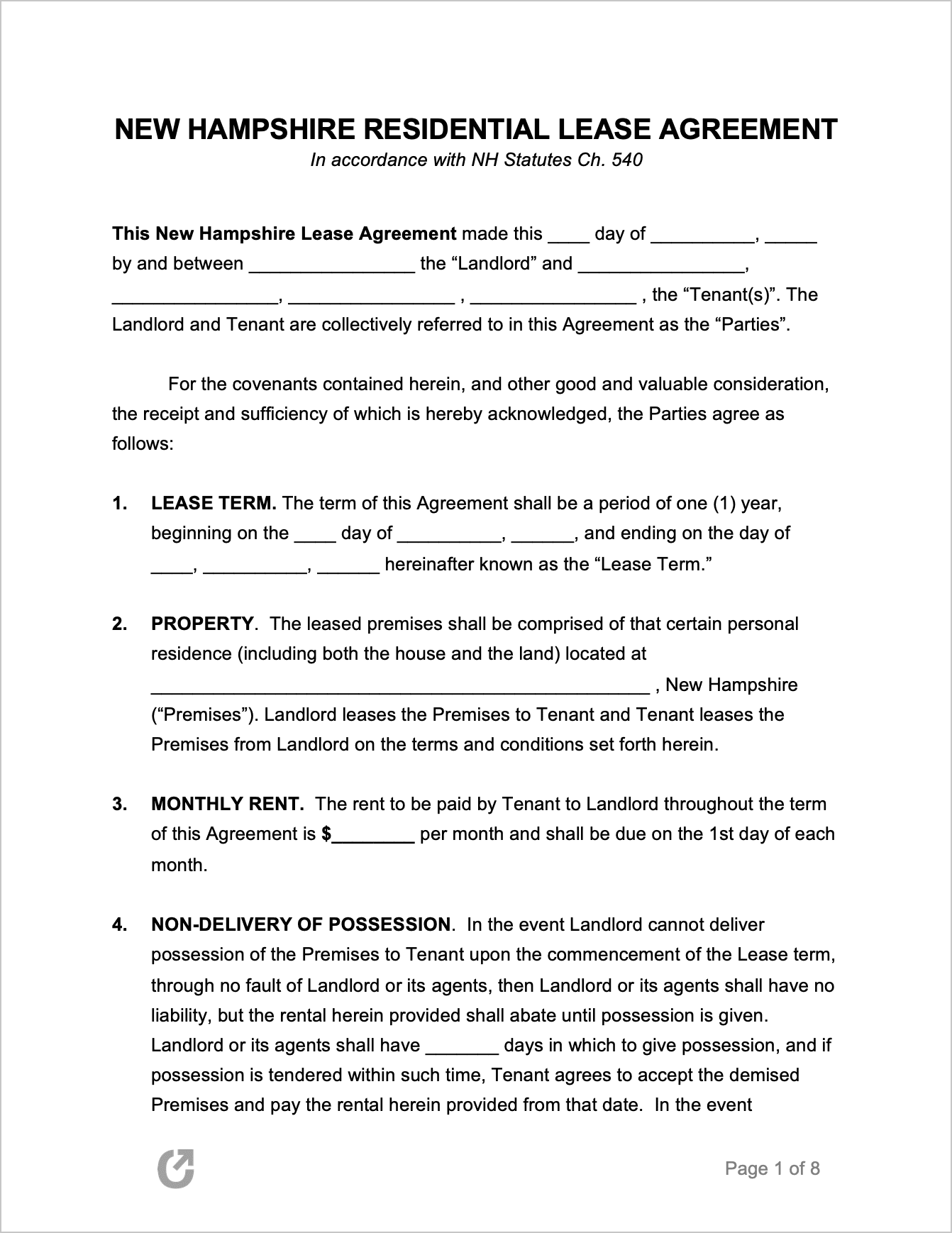New Hampshire Standard Residential Lease Agreement
The New Hampshire Standard Residential Lease Agreement is a contract formed between a landlord (or property owner) and a tenant that binds both parties to a set of agreed-upon conditions pertaining to rent, utilities, the lease term, property maintenance, default, and insurance, to name a few. Once signed, the tenant will be responsible for abiding by all included conditions until the lease’s termination.
The form defines the consequences for a tenant that doesn’t pay rent, damages the property, harasses neighboring tenants, or breaks other conditions of the lease. Typically, eviction is the most common consequence, although landlords can specify other consequences so long they fall in line with NH’s Landlord-Tenant laws.
Tenant Screening: New Hampshire Rental Application
State Laws
Laws: Ch. 540 “Actions Against Tenants”
Maximum Security Deposit (§ 540-A:6(I)(a)): One (1) month’s rent or $100 – whichever is greater. No limit if the rental is shared between the landlord and tenant, per § 540-B:10.
Interest (§ 540-A:6(IV)): Landlords are required to pay tenants interest on their deposits for deposits held for one (1) year or longer. The interest rate must be equivalent to a rate equal to whatever is paid on a standard New Hampshire bank savings account. Tenants are permitted to request the interest every three (3) years from the landlord.
Returning Security Deposits (§ 540-A:7(I)): Upon termination of the lease, landlords have thirty (30) days to return 1) the security deposit (or remainder thereof), and 2) the interest on the deposit. If any deductions are made on the deposit, the landlord must specify what the deductions are, why they were made, and other important information. Deductions cannot be made for standard wear and tear.
Notice for Increasing Rent (§ 540:2(IV)): A notice of thirty (30) days must be given to a tenant before raising their rent.
